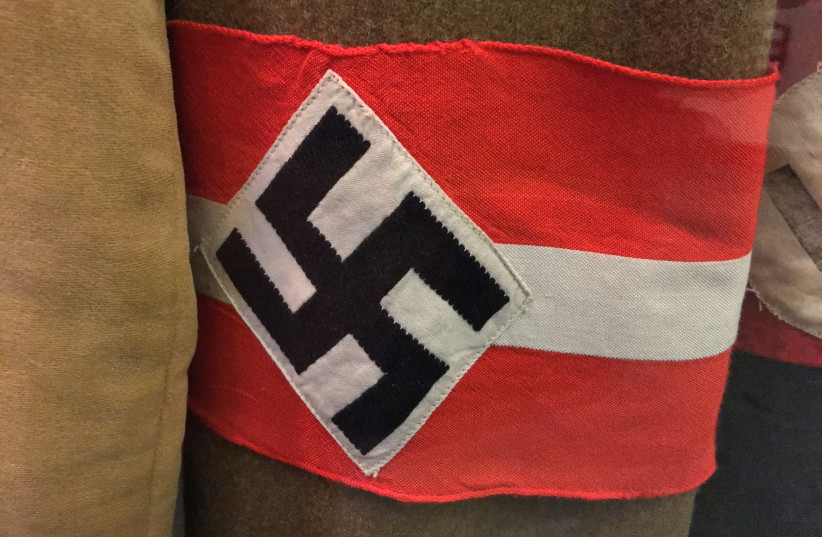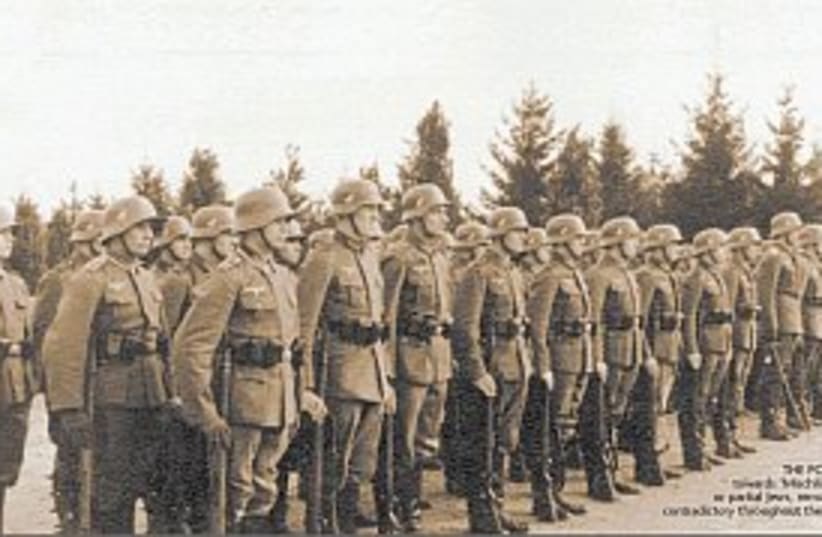The death of former Einsatzgruppe D operative Helmut Oberlander at his home in Waterloo, Ontario, late last month ignominiously ended one of the most frustrating and infuriating episodes in the belated postwar efforts of English-speaking democracies to take legal action against Nazi war criminals and collaborators who had immigrated to these democracies under false pretenses.
Unlike the situation in Germany and elsewhere in Europe, where the trials of Holocaust perpetrators began relatively shortly after the end of World War II, the English-speaking democracies realized only decades later that all of them – with the exception of South Africa, which was hermetically closed to immigration during the postwar period – had failed miserably in screening refugees from Eastern Europe, thousands of whom had committed Holocaust crimes.
(In other cases, the Western allies knowingly overlooked the Nazi past of German scientists, engineers and technicians who had worked on the production of V-2 rockets, and a number of individuals who were considered as spy potential behind the Iron Curtain.)
Thus initially in the US in the mid-1970s, and several years later, in Canada, Australia, and Great Britain, and even later in New Zealand, the authorities were confronted by this problem.
The US chose to prosecute these individuals for immigration and naturalization violations since they could not put them on trial for their World War II crimes, which were committed outside the US and whose victims were not American citizens.


The punishment in these cases was the loss of citizenship, if it had been obtained, which was true in most cases, and deportation or extradition.
Canada in 1987, Australia in 1989, and Great Britain in 1991 all passed special laws in their parliaments to allow criminal prosecution of World War II crimes.
From the beginning of this process, all three countries faced many obstacles, but the manner in which the issue was dealt with in Canada was particularly flawed, and in that respect Oberlander’s death at home in Waterloo was predictable.
The problems already began with the official Canadian inquiry into the issue, the Deschenes Commission, established in 1985. Although the overwhelming majority of the suspected Nazi war criminals who had immigrated to Canada were of Eastern European origin, the commission refused to contact any of the governments of their countries of origin. One of its conclusions was:
“Should the government of Canada not wish, as a matter of policy, to submit the name of the subject to the Yad Vashem archives, to the relevant Eastern bloc government or the appropriate archival center, the file ought to be closed.” Needless to say, that was an excellent way to close the majority of the cases.
THE NEXT blow to the Canadian effort was the result of the first case brought by the government to court.
On December 1, 1987, Hungarian gendarmerie Capt. Imre Finta was charged with the ghettoization, under horrible conditions, of 8,617 Jews in the city of Szeged, and their subsequent deportation from the Rokus railway station to the Auschwitz death camp from June 24 to 30, 1944.
Although Finta did not contest the charges, he was acquitted on May 25, 1990 by a Toronto jury on all eight counts of war crimes and crimes against humanity. They accepted his claim that he was merely following “superior orders,” and that in the violently antisemitic atmosphere in Hungary at the time, it was not clear that orders to deport Jews were illegal.
Given the fact that the “superior orders” defense had never been accepted in any Nazi war crimes case, and that the antisemitic laws passed in Hungary were clearly violations of the Hungarian constitution, the 1994 rejection of the government’s appeals against the verdict was absolutely shocking.
That decision, however, forced the Canadian government to abandon criminal prosecution; that same year it switched to the American model of prosecution for immigration and naturalization violations.
At that point, the government stripped 10 Canadian residents of their citizenship, among them Oberlander, who had served in Einsatzgruppe D (Einsatzkommando 10A), which murdered tens of thousands of Jews in southern Ukraine, and whose commander, Dr. Otto Ohlendorf, was executed after being convicted at Nuremberg.
Of the 10 individuals who were stripped of their citizenship, only two left Canada voluntarily, while the eight others, including Oberlander, chose to remain in the country and contest the decision.
His case has been like a roller coaster. His citizenship was revoked four times (!), and he succeeded in getting it back the first three times. When it was revoked for the fourth time, I wrote an op-ed in The Jerusalem Post on July 30, 2017, expressing my doubts whether that step would “mark the beginning of a satisfactory conclusion to this very frustrating and infuriating episode.” Unfortunately, that proved prophetic.
Not a single one of the eight Nazi war criminals who chose to fight against their deportation from Canada was deported from the country. Seven had already previously died in Canada, and now that Oberlander has died in his own home in Waterloo, it’s fair to say that the Canadian government has utterly failed to rid Canada of individuals who did not deserve the right to live in peace and tranquility, a privilege they helped deny their innocent victims.
To quote my colleague Michael Levitt, the CEO and president of the Toronto Friends of the Simon Wiesenthal Center for Holocaust Studies, “That he [Oberlander] and so many others complicit in such barbarity could live happily ever after in Canada is a searing indictment of our justice system and the lack of political will to prosecute them. Their continued presence here over the past 75 years is an affront to our values as Canadians.”
The writer is the chief Nazi-hunter of the Simon Wiesenthal Center and director of the center’s Israel office and Eastern European affairs. His latest book, with Ruta Vanagaite, is Our People; Discovering Lithuania’s Hidden Holocaust (Rowman & Littlefield, 2020). His website is www.swcjerusalem.org and he can be followed on Twitter @EZuroff.
